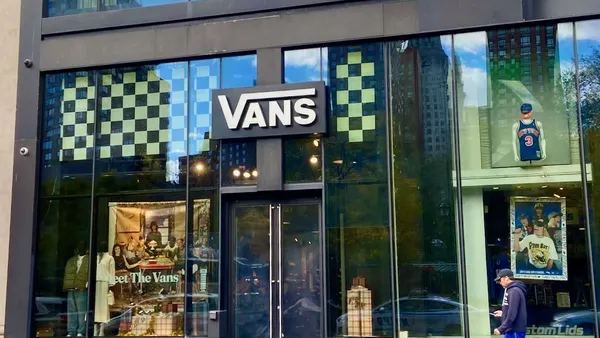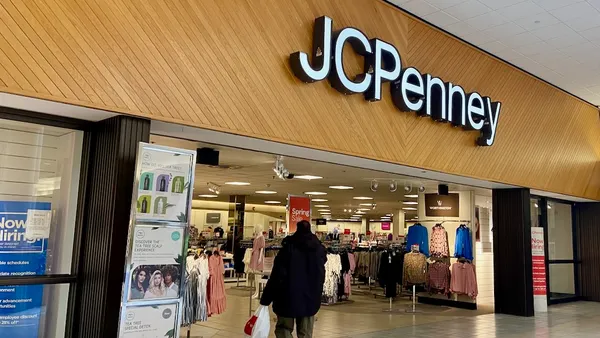Dive Brief:
-
Wal-Mart Stores Inc. Monday topped Fortune’s annual list of the 500 U.S. companies with the highest fiscal year revenues. This is the fourth year in a row the retailer has been No. 1.
-
Other retailers in the top 10 are Apple at No. 3—the most profitable company on the list and moving up from No. 5 last year—and CVS Health at No. 7.
-
Amazon moved to No. 18 from No. 29 this year, and Walgreens moved to No. 19 from 35 last year. Home improvement retailer Home Depot took the 28th spot this year.
Dive Insight:
Retailers, including Wal-Mart, still face significant headwinds as apparel sales continue to fall and move online. Despite Wal-Mart’s top prize on Fortune’s iconic list, the retailer’s revenue fell 0.7% last year, with total sales falling for the first time, a fact the the magazine notes.
Wal-Mart has seen results in its efforts to turn things around though, which includes a billion dollar investment in higher wages for its employees and a focus on improving the in-store experience. According to Fortune, Wal-Mart has seen huge boosts to its customer satisfaction ratings in its stores, and the retailer was one of the few bright spots in an otherwise dim recent earnings season.
But as more customers move online, Wal-Mart is looking to follow them. CEO Doug McMillon admitted during its last earnings conference call that the retailer has been struggling to grow its e-commerce business, saying the company needs "stronger growth" in that area. The company is accelerating efforts to grow both domestically and abroad, including a focus on online sales of food in China.
“[H]uge challenges remain for the world’s largest company,” according to Fortune. “Its e-commerce growth lags that of its main rivals. Its Sam’s Club unit is struggling to keep up with Costco. What’s more, its international division is being buffeted by a strong U.S. dollar that is eating into profits.”
Amazon's move up the list is another sign of its growth opportunies, which MKM Partners analyst Rob Sanderson said last week helped it surpass Facebook as the sixth-largest U.S. company by stock market value; with “two of the largest secular growth opportunities” in retail and cloud computing, Amazon could reach number one by 2020, according to Sanderson. Amazon's digital and physical prowess is also forcing brick-and-mortar stores (like Wal-Mart) to invest in digital and omnichannel operations, while its massive fulfillment operations have largely escaped the problems (along with the advantages) of physical stores.
Walgreen's shift up is likely from its merger with Boots Alliance, completed last year, but that showing plus CVS Health's spot in the top 10 demonstrate how drugstore retailers are solidifying their lucrative health care operations.
Wal-Mart recently said that it is testing drones in its warehouses to speed up fulfillment time, and is piloting same-day delivery initiatives with partnerships with Uber, Lyft, and Deliv. McMillon took great pains to highlight these tech investments and more during a recent shareholder meeting, according to Reuters, including its online grocery pick up, two-day shipping, and Walmart Pay mobile payment app.













